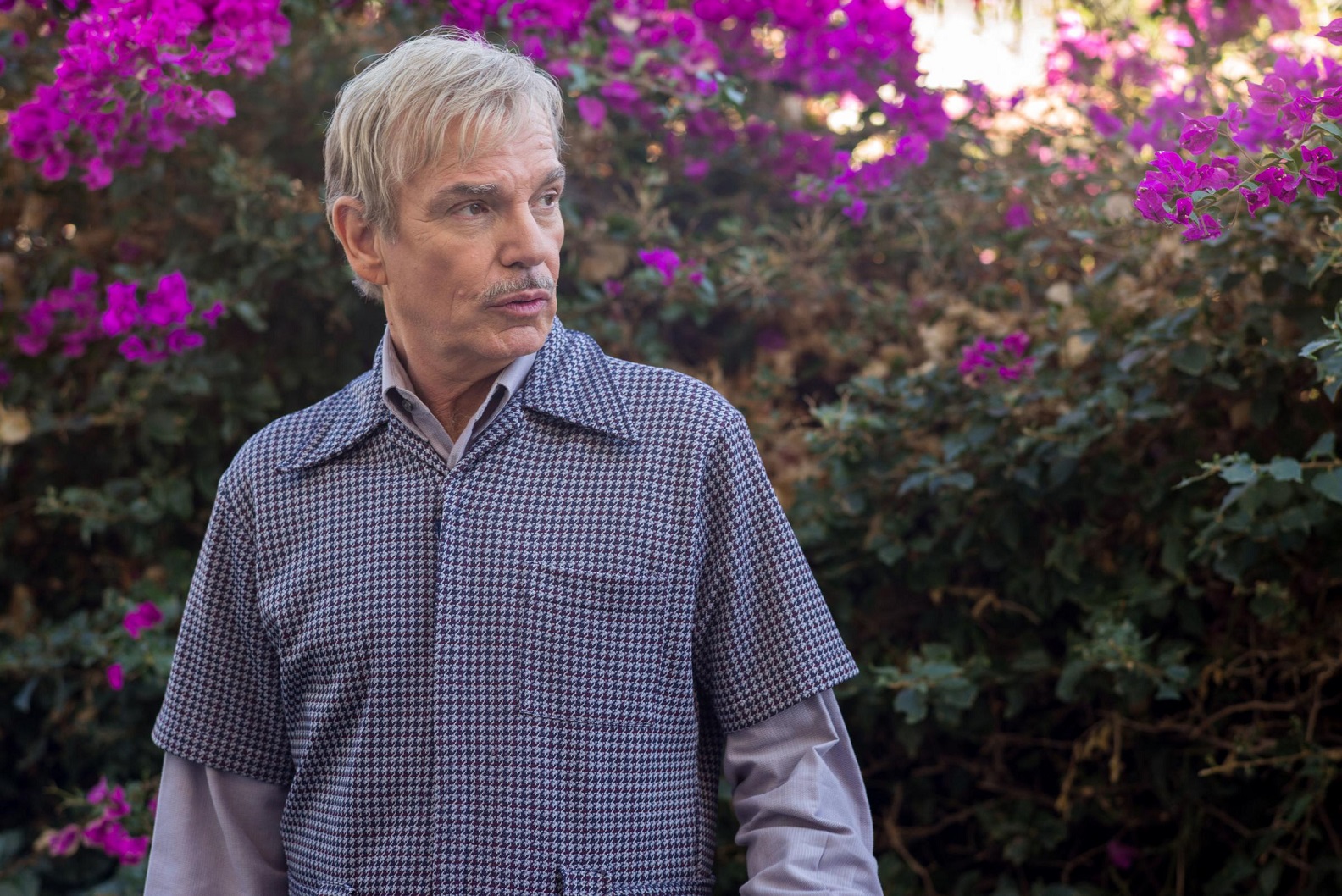The high, crackhead days of James Frey (Aaron Taylor-Johnson) are over in five adrenalized minutes, as he dances naked to the Smashing Pumpkins, then tumbles insensibly backwards from a ledge. Sam Taylor-Johnson’s adaptation of Frey’s controversially fictionalised addiction memoir then focuses unsensationally on his recovery.
“I’ve never seen this degree of degradation in someone so young,” a doctor intones. James’s battered face is further, outward testament that any backsliding will be fatal. Taylor-Johnson emphasises redemption over that degradation, in the sunlit corridors of a rehab facility which only fleetingly nods to One Flew Over the Cuckoo’s Nest’s institutional cruelty. James finds enemies here. Mostly, though, he fights his mulish, terrified refusal to change. “Why would anyone in their right mind choose all that destruction?” Juliette Lewis’s doctor coaxes him to ask. Armed with a stray copy of the Tao Te Ching and sternly challenged by this benign rehab community, his retorts lose their force. “We’re all we’ve got,” he’s told.
 It’s a decade since Taylor-Johnson made her directorial debut with Nowhere Boy, showing John Lennon’s teenage relationship with his mother as a tragedy equal to his assassination, with precisely calibrated but overwhelming emotion. Aaron Johnson was her young star then, her husband and co-writer now. But the E.L. James-compromised, commercially phenomenal Fifty Shades of Grey is the remaining sum of her cinema career. The institutional sexism which hobbles female auteurs seems the obvious cause. A Million Little Pieces, though, leaves the scale of her talent uncertain. It’s diligently convincing, and admirable in its optimistic slant on recovery. There is, though, little happening outside this heartfelt, soft-focus propaganda.
It’s a decade since Taylor-Johnson made her directorial debut with Nowhere Boy, showing John Lennon’s teenage relationship with his mother as a tragedy equal to his assassination, with precisely calibrated but overwhelming emotion. Aaron Johnson was her young star then, her husband and co-writer now. But the E.L. James-compromised, commercially phenomenal Fifty Shades of Grey is the remaining sum of her cinema career. The institutional sexism which hobbles female auteurs seems the obvious cause. A Million Little Pieces, though, leaves the scale of her talent uncertain. It’s diligently convincing, and admirable in its optimistic slant on recovery. There is, though, little happening outside this heartfelt, soft-focus propaganda.
There are directorial flourishes, as when Frey hallucinates slipping and sliding through excrement-coated corridors, and he and illicit female friend Lily (Odessa Young) fantasise fixing up to the Velvet Underground’s “Candy Says”. With regular David Fincher cinematographer Jordan Cronenweth, Taylor-Johnson filters this antiseptic world through a redemptive, richly coloured glow, suggestive of Seventies film. It also has an anaesthetising, suburban evenness, as if we’re participating in the cure.
 Actorly flourishes are more effective, especially Billy Bob Thornton’s mesmerically Zen, dapper gangster mentor (pictured above). Odessa Young’s seductive, desperate warmth and Giovanni Ribisi’s equally hungry, funny, finally tragic lunges at connection, sexual or otherwise, add to the finely balanced, understated equation. Only a late descent back towards addiction sinks into predictably jangled shadows and nightmare hues. Here Frey crushes a vial under his heel like a snake, defeating backsliding’s satanic temptation. Novelistic turns abound by now, his ambiguous “memoir” losing narrative conviction.
Actorly flourishes are more effective, especially Billy Bob Thornton’s mesmerically Zen, dapper gangster mentor (pictured above). Odessa Young’s seductive, desperate warmth and Giovanni Ribisi’s equally hungry, funny, finally tragic lunges at connection, sexual or otherwise, add to the finely balanced, understated equation. Only a late descent back towards addiction sinks into predictably jangled shadows and nightmare hues. Here Frey crushes a vial under his heel like a snake, defeating backsliding’s satanic temptation. Novelistic turns abound by now, his ambiguous “memoir” losing narrative conviction.
Mostly, though, A Million Little Pieces is as sober as Frey reluctantly tries to be. Potentially vivid, grisly incidents such as rebreaking his nose and anaesthetic-free dentistry are typically softened, their point unclear. This close character study in an extreme social setting shuns exploitation, but lacks compensatory power of its own.















Add comment